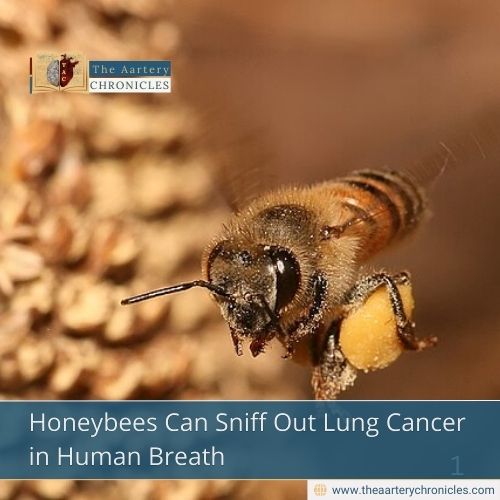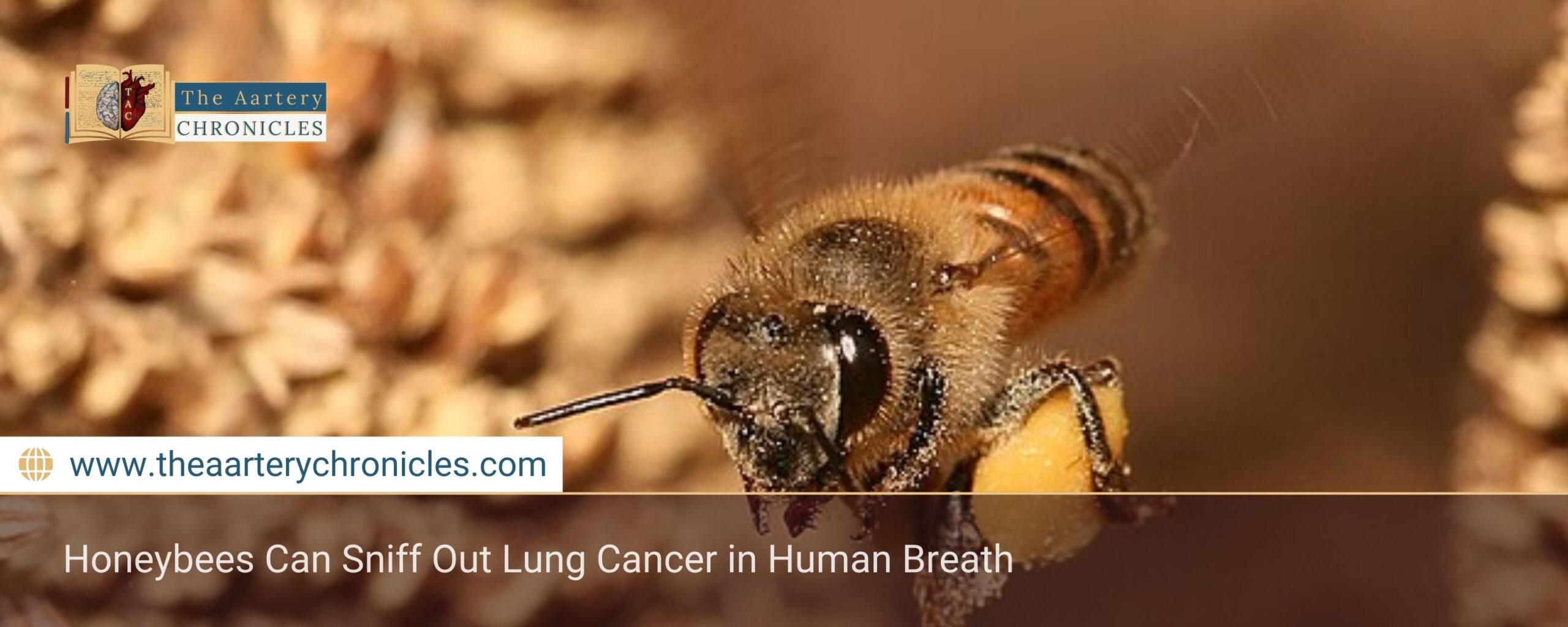

Honeybees Can Sniff Out Lung Cancer in Human Breath
Lung cancer is one of the leading causes of cancer deaths worldwide, and catching it early can make a huge difference in survival rates. Now, researchers at Michigan State University (MSU) have revealed something extraordinary: honeybees can detect lung cancer by identifying unique chemical markers in human breath. Even more impressively, these tiny insects can tell apart different types of lung cancer cells using only their powerful sense of smell. The findings, published in Biosensors and Bioelectronics, could change how we screen for this deadly disease.
Honeybees’ Super Sense of Smell
Bees are famous for their sharp sense of smell, which they use to find flowers, recognise hive members, and detect chemical changes in their environment. According to Debajit Saha, assistant professor at MSU’s College of Engineering, bees are similar to dogs when it comes to odour detection. They can sense even the faintest traces of chemicals, sometimes at concentrations as low as parts per billion. This ability made researchers wonder if bees could detect cancer biomarkers in human breath?
How Scientists Tested the Bees
To explore this, MSU researchers designed a creative experiment. Former lab manager Elyssa Cox and doctoral candidate Michael Parnas developed a synthetic version of “cancer breath.” This artificial sample included compounds like trichloroethylene and 2-methylheptane, which are often found in the breath of lung cancer patients. Another sample was prepared to mimic healthy breath.
About 20 honeybees were then exposed to these samples while being carefully studied.
Recording Bee Brain Activity
To understand how bees respond, Cox built a special 3D-printed harness to gently hold each bee in place. Tiny electrodes were connected to their brains so that researchers could measure neural activity when the bees were exposed to different odours.
The results were striking: when the cancer-related compounds were presented, the bees’ brain activity clearly changed. This confirmed that honeybees were not only detecting the cancer biomarkers but doing so with incredible sensitivity.
Detecting Different Lung Cancer Types
The research went a step further. With the help of Christopher Contag, director of MSU’s Institute for Quantitative Health Science and Engineering, lung cancer cell cultures were grown in airtight containers. Using the bee-brain sensor system, the insects successfully distinguished between small cell lung cancer, non-small cell lung cancer, and healthy cells.
This matters because different types of lung cancer often require different treatments. Being able to identify them early could help doctors make faster and more accurate treatment decisions.
Why Honeybees Over Dogs?
Dogs have been studied for disease detection before, but honeybees bring unique advantages. They are small, easier to handle in controlled lab settings, and their brain signals can be recorded directly. This makes them ideal for creating new diagnostic tools inspired by their biology.
Future of Cancer Detection
This discovery could transform cancer screening. Instead of invasive tests or expensive scans, patients in the future might only need to breathe into a device equipped with bee-inspired sensors. That device could instantly analyse the breath and send results wirelessly to doctors.
Such a technology could:
- Detect cancer at much earlier stages than many current tools.
- Provide a painless and non-invasive alternative to biopsies.
- Lower costs and improved access, especially in low-resource areas.
- Help personalise treatment by identifying cancer subtypes quickly.
Conclusion
The idea that honeybees can detect lung cancer may sound surprising, but this research shows just how powerful nature’s abilities can be when paired with modern science. With further development, bee-inspired diagnostic tools could revolutionise how we catch cancer early, offering hope for more effective, accessible, and life-saving healthcare solutions.
Source: Inputs from various media Sources
I’m a pharmacist with a strong background in health sciences. I hold a BSc from Delhi University and a pharmacy degree from PDM University. I write articles and daily health news while interviewing doctors to bring you the latest insights. In my free time, you’ll find me at the gym or lost in a sci-fi novel.
- Priya Bairagi
- Health News and Updates,People Forum
- 29 August 2025
- 22:00








